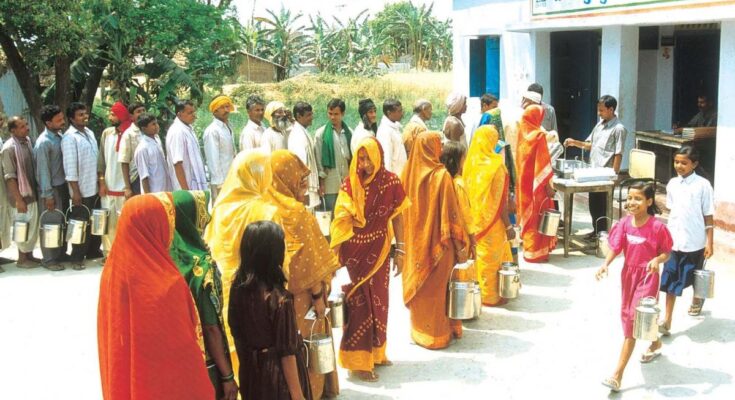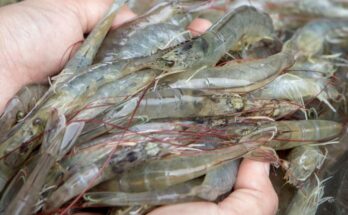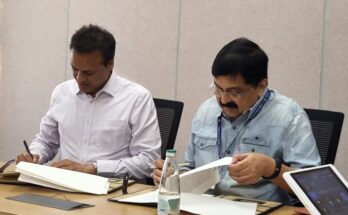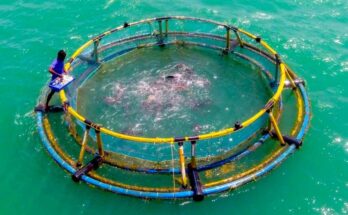National Dairy Development Board (NDDB) is working with Government of Maharashtra to implement Vidarbha and Marathwada Dairy Development Project (VMDDP), which is transforming the lives of small and marginal dairy farmers in Vidarbha and Marathwada regions of Maharashtra. Dairying has turned in as the ray of hope to ease farmers’ distress with NDDB’s initiatives enhancing the income of more than 91,000 farmers by providing fair share of consumer price.
Dilip Rath, Chairman, National Dairy Development Board said, “Vidarbha and Marathwada have been the most drought affected regions, making it agriculturally distressed; therefore dairying in such adverse climatic conditions can create additional sources for livelihood of farmers. Taking the cause forward, NDDB through its subsidiary Mother Dairy intervened in setting up of milk procurement infrastructure to facilitate the larger objective of rural prosperity by providing better remuneration to the farmers of the region.”
NDDB and Government of Maharashtra signed an MoU in 2013 for taking up dairy development in drought prone Vidarbha and Marathwada regions to make dairying a source of sustainable livelihood and poverty alleviation for milk producers. Mother Dairy Fruit and Vegetable (MDFVPL) refurbished the Nagpur dairy plant, which has milk processing capacity of two lakh litres per day.
Under the project, on an average 185,000 litres of milk is procured every day at 1,454 Milk Pooling Points (MPPs) and products are being supplied to more than 2,350 milk booths franchisee outlets and retailers in about 40 cities. At present, milk is being procured from dairy farmers residing in around 2,503 villages of 10 districts – Amravati, Yavatmal, Wardha, Nagpur, Chandrapur and Buldhana – in Vidarbha along with Nanded, Osmanabad, Latur and Jalna in Marathwada region. Electronic weighing and testing facility is deployed to ensure a transparent system wherein farmers can observe the weight, quality results and value of their milk poured. A computerised printed slip is provided to each farmer and they receive their payments directly in their bank accounts which ensures transparency. It is to be noted that almost 30 percent of the members are women and a further emphasis is being laid to increase their participation.
To enhance the milk production and further increase dairy farmers’ income, good quality cattle feed is being provided to members covering 319 villages and mineral mixture to members covering 265 villages at reasonable prices, sourced from various parts of the state. Conserving green fodder in the form of silage is one of the best options available to ensure regular supply of quality fodder to bovines, especially during lean season. For which, farmers are being trained in silage making.
Besides providing liquid milk to the consumers, Mother Dairy has launched products like curd, mishti doi (sweet yoghurt), buttermilk milk, tadka chhaas, ghee, orange burfi, sweets, flavoured milk, milk shake, tetra lassi, lassi fresh, ice cream, butter, paneer, cheese, dairy whitener, UHT milk, UST cream, Safal products and Dhara edible oils. Its daily value added product sale has already touched the mark of 6,800 Kg.
Under the project, Maharashtra Animal & Fishery Sciences University (MAFSU) and NDDB signed an MoU to promote livestock farm development activities including fodder development activities through scientifically managed production of quality fodder and ethno-veterinary medicinal plants on the farms of MAFSU located across Maharashtra. MAFSU and NDDB also agreed in arranging demonstration of fodder production and conservation technologies and ethno-veterinary medicinal plants to the farmers and other stakeholders, augmenting livestock productivity for upgradation of native breeds, developing dairy and dairy composite products, development of nutraceuticals for nutritional purposes, customised dairy products, enhancing farm management practices and other research and developmental activities.
NDDB in collaboration with All India Radio has launched Radio Samvad, an awareness series on radio for dairy farmers of Vidarbha and Marathwada region. Every Tuesday and Friday, a 30-minute episode is broadcast from Nagpur, Jalgaon, Aurangabad, Osmanabad and Nanded radio stations on subjects related to scientific dairy animal husbandry practices . Subject experts from NDDB are conducting the sessions in which dairy farmers are taking keen interest.
Success Stories
Mother Dairy supports dairy farmers
Aashish Vijaykumar Bhosale, 27, a farmer from Marathwada’s Latur district, was in for a rude shock when the private dairy, which used to purchase milk from him and many farmers in the village, shut business without clearing dues. This left a mark on dairy farmers of their village and most of them left milk business altogether. Three years back, when Mother Dairy started operations in the region, Ashish, a graduate in Agriculture, had to convince his 10 family members to purchase a cow and associate with Mother Dairy. He is presently pouring about 80 litres per day. “In one lactation itself, I earned Rs. 1.75 lakh. This boosted my confidence and within three years now I have 10 cows and seven buffaloes,” he said. He has constructed a new cattle shed, is cultivating fodder on one acre of land and has purchased fodder cutter machine. He wants to grow his cattle herd to 40 animals and is no more looking to take up a job.
Dairying provides steady income even during lockdown
Bhaiya Prakashrao Chaudhary, a resident of Digargavhan village in Amravati, had just one cow and was selling just four litres milk when he got associated with Mother Dairy. But now he owns six cows and earn more than Rs 1,100 in each payment cycle. 36-year-old Chaudhary says Mother Dairy helped him learn about Ration Balancing Programme. It helped him bring down the milk production cost. To further increase his profit margin, he started growing green fodder on his agricultural land, and feeding mineral mixtures to his cattle. All these steps led to increase in milk production which has crossed the 32 litres a day mark. He said, “All private dairies closed their shutters during lockdown due to COVID-19 pandemic but Mother Dairy was functional so no milk was wasted.” “The regular milk payment, we received helped dairy farmers to sustain in pandemic situation,” Chaudhary added.
Story of Pradip
Pradip Ramdasji Telrandhe, 44, a resident of Rehaki village in Wardha district, had just one cow till few months back. His family used to sell two litres of milk after household consumption. Telrandhe’s interest in dairy business grew after he saw his peers in the village getting fair price and steady income from newly-opened Milk Pooling Point of Mother Dairy. Telrandhe says he started pouring milk at the Mother Dairy MPP and slowly purchased five cows one by one as his income increased. Now his two cows are in milk and he sells 17 litres of milk at the MPP daily. He now earns Rs. 550 per day from his dairy business which is a major livelihood support for his family of five.
Sunita shows the way
Sunita Tulsidas Wanjari, 27, was a paddy farmer but her income from cultivation on two acres of land was not enough to sustain a family with six members. That is why she used to also work at her brother’s pesticide store. Still the financial situation was grim for her. When Mother Dairy opened a milk pooling point in her village, she decided to start dairy business. She purchased two cows and started pouring milk at the MPP in October 2018 and with help of this income she purchased two more cows. Now she pours about 17 litres of milk every day and earns about Rs 500 per day. Encouraged by the income, all her family members started dairy business, besides paddy farming. They have constructed a new cattle-shed and growing fodder on half-a-acre of land which has further increased her profit margin.
An inspiration named, Mangala
Mangala Jivan Badan, 45, a resident of Dhorpa village in Chandrapur district, had five cows which she received under a government scheme. However, she lost interest in dairy business as she had to daily cover a long distance to sell milk. Also, malpractices in milk collection made her lose interest in the profession. But when a new MPP point started and she learned that dairy farmers are getting paid in a transparent manner and the income is directly transferred to bank account, she thought of putting efforts in the business once again. The timely payment and transparent milk collection system changed her mind. Instead of leaving business, she increased milch animals to 13 and presently pours about 30 litres of milk per day. She earns over Rs 1,100 per day, and uses the time saved in her household work.




